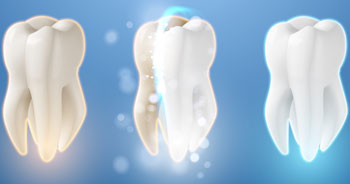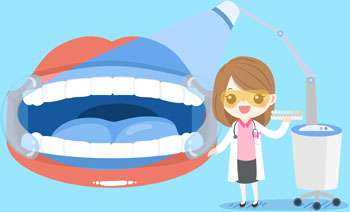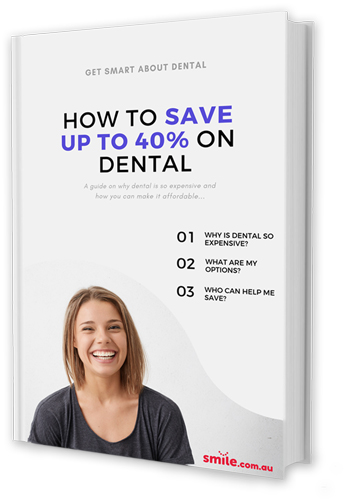How to Whiten Teeth: Know About Treatment Procedure & Cost
Reviewed June 2024 by Our Content Experts
- What is Teeth Whitening?
- What Happens During Teeth Whitening Treatment?
- Am I A Good Candidate For Teeth Whitening?
- How Does Teeth Whitening Work?
- What Are the Best Teeth Whitening Treatments?
- How Much Does Teeth Whitening Cost?
- How Long Does In-Chair Teeth Whitening Take?
- Does Teeth Whitening Hurt?
- Is Teeth Whitening Safe?
- Is Teeth Whitening Permanent?
- What's the Difference between Having Teeth Whitening Treatment at Home and at the Dentist?
- Are There Any Potential Risks With Teeth Whitening?
- Who Can't Have Teeth Whitening Treatment?
- Will Teeth Whitening Make My Teeth Sensitive?
- How Do I Reduce Teeth Sensitivity?
- Can Teeth Whitening Damage Your Teeth?
- Does Whitening Have Any Effect On Fillings Or Crowns?
- Can Teeth Whitening Damage Gums?
- What Can I Expect After Teeth Whitening?
- How Long Does Teeth Whitening Last?
- Can I Continue Smoking After Teeth Whitening?
- Can I Drink Coffee After Teeth Whitening?
- Can I Drink Alcohol After Teeth Whitening?
- What Can I Eat Immediately After Teeth Whitening Treatment?
- What Should I Avoid After Teeth Whitening Treatment?
- How Can I Retain My White Teeth?
- What Causes Tooth Discolouration?
- How Old Do You Have To Be Whiten Your Teeth?
- How Much Whiter Will My Teeth Be?
- Are There Any Alternative Treatments To Teeth Whitening?
- Get Your Teeth Whitening Treatment with Smile
What is Teeth Whitening?
Teeth whitening is a cosmetic procedure that helps to lighten teeth by removing stains and discolouration. All teeth whitening products contain peroxide, either as carbamide peroxide (CP) or hydrogen peroxide (HP).
You can whiten your teeth at home with an over-the-counter treatment, but you will achieve better results by visiting one of our Smile dentists, as their treatments typically contain a higher percentage of peroxide and are less abrasive. This leads to more effective results without damaging your tooth enamel.

What Happens During Teeth Whitening Treatment?
Treatment for teeth whitening generally begins with a consultation with your Smile dentist. It's important for your dentist to complete a thorough check-up to determine which kind of treatment is the best for your individual needs and wants.
For in-chair whitening, your dentist will first place either a rubber shield or gel on your gums. This protects your gums and other soft tissues from the effects of bleaching. They will then apply the whitening product to your teeth. Typically the active agent in whitening products is either hydrogen peroxide or carbamide peroxide. The active ingredients are broken down and as oxygen gets into the enamel on your teeth, stains are removed, leaving you with a brighter smile. Some treatment may also involve using a light or laser to activate the whitening product.
You can also receive take-home products from your dentist in addition to (or separately from) in-practice products. For this treatment, your dentist will take an impression of your mouth to create custom-fitted trays. These trays are made specially to place the whitening product directly against your teeth while minimising contact with your gums. Depending on your dentists' instructions and specifications, this form of whitening treatment can usually be done in 3 - 4 weeks.

Teeth Whitening Procedure
Am I A Good Candidate For Teeth Whitening?
The best candidates for teeth whitening are:
- Mature enough to fully understand the procedure
- Experiencing stained and discoloured teeth
- Knowledgeable about the procedure
- Realistic in their expectations
This is only a partial list of the criteria that cosmetic dentists will consider in determining whether or not this procedure is appropriate for you, and it may also depend on your individual circumstances.
How Does Teeth Whitening Work?
The peroxide in teeth-whitening products dissolves the organic stains in the tooth to change the colour and produce a whitened effect. This is achieved by entering the tiny pores of the enamel and dentin before breaking up the stains that block out light. More light passes through the teeth and makes them look lighter as the stains are broken into smaller and smaller pieces.
In-practice procedures are more effective as they can remove internal stains, whereas over-the-counter options are only able to remove surface stains.
What Are the Best Teeth Whitening Treatments?
There are four types of peroxide-containing teeth whitening products available:
- In-practice products
- Take-home products
- Over-the-counter products
- Over-the-counter toothpaste
In-Practice Products
In-practice products are applied by a dental professional. These products contain a high percentage of peroxide and are applied directly to the teeth, sometimes activated by heat, light, or laser. If you are wanting fast results and you don't have tooth sensitivity, this may be the best option for you.
Dentist Take-Home Products
A take-home product that is supervised by a cosmetic dentist contains a lower percentage of peroxide than in-practice products and can be worn in a tray overnight or during the day at home.
A custom-fitted tray is made to hold the teeth whitening product directly against the teeth while minimising its contact with the gums. Some products have fluoride added to help prevent or treat mild tooth sensitivities. The typical stains of ageing will whiten in 7-14 days when the tray is worn overnight.
Over-the-Counter Products
Over-the-counter (OTC) whitening products contain a small percentage of peroxide, leading to slower and less effective results. A lot of these products contain an acidic solution that can damage tooth enamel, so they should always be used with caution.
It can sometimes take up to 6 months for over the counter products to show results. The risks involved and time needed for results with these products makes whitening by a professional dentist the safer and more effective option.
Over-the-Counter Toothpaste
Over-the-counter teeth-whitening toothpastes also contain a small percentage of peroxide or a polishing ingredient. The toothpastes are effective in removing surface stains and whitening teeth, but some can be very abrasive.
With repeated use, the harsh abrasive will gradually wear away the enamel and make the teeth look yellow. Cosmetic dentists can advise you about the safety and cavity protection of specific toothpastes before you make a purchase.
How Much Does Teeth Whitening Cost?
The price of teeth whitening depends on your individual circumstances and the desired results. You may require just one treatment or several depending on your situation.
Smile members:
- Get reduced and capped fees on all dental treatments including teeth whitening
- Save every time they visit any of 4,000+ Smile dentists across Australia
- Plus there's no waiting periods, no treatment exclusions, no benefit limits, and no claiming rebates
How Long Does In-Chair Teeth Whitening Take?
In-chair cosmetic teeth whitening treatments typically range between 1- 3 hours. The time can vary depending on the product your dentist uses, including whether your treatment involves a laser or ultraviolet light, and your individual circumstances.
Does Teeth Whitening Hurt?
The discomfort experienced varies from person to person and depends on the method used. In most cases, adults experience very minor discomfort that lasts 1-3 days after the treatment. This can be easily treated with over-the-counter painkillers.
Your Smile dentist may also instruct you to apply a gel fluoride in your teeth-whitening tray to help decrease sensitivity.
Is Teeth Whitening Safe?
Whitening your teeth with a cosmetic dentist is a completely safe procedure. Your Smile dentist will have you wear protective goggles and use gels and rubber shields to protect your gums from exposure to the active bleaching ingredients during in-chair procedures. Similarly, in the very unlikely case of an emergency or allergic reaction, your Smile dentist is a trained clinician and is available to provide support quickly and calmly.
For take-home treatments, your Smile dentist will create custom-fitted trays for you to take home. These trays are specially created to minimise contact between the whitening product and your gums, which may cause irritation.
Is Teeth Whitening Permanent?
Teeth whitening is not permanent. It can generally last from a few months up to three years, however, this depends on your individual circumstances. The effect of the treatment will be impacted if you frequently smoke or drink dark liquids such as red wine, tea, or coffee.
What's the Difference between Having Teeth Whitening Treatment at Home and at the Dentist?
According to the Australian Dental Association, there is a higher risk of experiencing negative side effects from teeth whitening when it isn't performed by a registered professional. Your Smile dentist will use additional protective measures, such as gel and rubber shields, to protect your gums from the bleaching product.
The strength of the bleaching agent is also not the same for teeth whitening treatment provided by a dentist and products available in-store. Products bought in-store or over the counter often contain a weaker bleaching agent than the professional tooth whitening products your dentist applies.
Your Smile dentist also takes an impression of your teeth to ensure your tray is a perfect and customised fit. The customised fit allows for maximum contact between your teeth and the whitening product. Customised trays also protect your gums by minimising contact between them and the bleaching agent. Store bought products, however, are generally one-size fits all and do not guarantee a perfect fit. If your trays are ill-fitting, you may experience irritation from any whitening product seeping onto your gums.
Similarly, teeth whitening treatments are not a one-size fits all procedure. By performing an oral exam and considering your medical history, your Smile dentist ensures that you receive the appropriate whitening treatment tailored to your personal requirements.
Are There Any Potential Risks With Teeth Whitening?
The side effects of teeth whitening include tooth sensitivity and pain in the gums and tongue. There is also a possibility of over-whitening, resulting in a translucency that may appear grey from the shadows of the mouth. This is very rare and only occurs if the whitening process is over-extended. With take-home whitening, there is a small risk of ingesting the administered gel, which could lead to nausea, burning and vomiting. The chances of this occurring are slim, as your teeth-whitening tray should fit almost perfectly around your teeth. The peroxide in teeth-whitening products can burn your gums if they are not properly protected, which is another reason why it is recommended to leave your mouth in the hands of professional dentists.
Who Can't Have Teeth Whitening Treatment?
There are potential risks associated with teeth whitening treatment, so it is not recommended for pregnant or lactating women. It is similarly not recommended if you are allergic to peroxide. If you have receding gums you may be more likely to experience tooth sensitivity. However, tooth sensitivity typically disappears within a few days. Cavities need to be treated prior to teeth whitening treatment and if you have defective restorations or worn enamel, it is important to consult with your Smile dentist on the best treatment available for your situation.
Will Teeth Whitening Make My Teeth Sensitive?
Tooth whitening can cause temporary tooth sensitivity, especially if you experience tooth decay or receding gums. This sensitivity is treatable with over-the-counter painkillers, and it is reversible over time.
How Do I Reduce Teeth Sensitivity?
You can reduce teeth sensitivity following teeth whitening treatment by using a toothpaste made for sensitive teeth. It is also recommended to avoid very hot or cold foods for the first few days after you have received treatment.
Can Teeth Whitening Damage Your Teeth?
Often patients will ask "does teeth whitening damage my teeth?" and "will bleaching my teeth ruin the enamel?" The answer is no, teeth whitening products administered by a registered dentist will not harm your tooth enamel. Enamel is one of the hardest tissues in the human body. While whitening treatment can cause temporary tooth sensitivity, it will not permanently damage your tooth enamel.
Does Whitening Have Any Effect On Fillings Or Crowns?
No, tooth whitening does not have any effect on fillings or crowns – they will remain the same colour. Tooth-coloured fillings and crowns will need to be replaced after whitening if you wish all of your teeth to be the same colour.
Can Teeth Whitening Damage Gums?
While teeth whitening treatments can cause temporary gum irritation, this treatment does not cause permanent damage. Having your dentist custom fit your mouthpiece tray can help reduce the risk of gum irritation or sensitivity.
What Can I Expect After Teeth Whitening?
After teeth whitening, it is advised that you avoid substances that stain, such as tobacco and red wine, for about a week. This is because the pores in your teeth are open and your teeth are more receptive to staining factors after your teeth-whitening treatment. Your teeth may also feel slightly sensitive to very hot or cold foods and beverages.

How Long Does Teeth Whitening Last?
Brushing and flossing regularly will help to maintain whiteness, and you can generally expect the results to last about 1-3 years – or even longer if you are a non-smoker and avoid foods that are known to stain teeth. Because teeth whitening is not permanent, you will need to maintain your bright smile with continued treatments. For regular patients, this upkeep can be costly, but with Smile member savings, Smile members can maintain their beautiful smile with affordable re-treatments.
Can I Continue Smoking After Teeth Whitening?
Smoking will rapidly reverse the results of your teeth-whitening treatment. Tobacco causes deep staining within the tooth enamel and should be avoided completely for at least a week after your treatment. Smokers will require more regular re-treatments than non-smokers to maintain their colour.
Can I Drink Coffee After Teeth Whitening?
It is recommended that you avoid acidic and tannin-rich food and beverages after you have teeth whitening treatment. It is important to avoid drinking coffee and black tea, especially immediately after you receive your treatment. To help maintain the results of your teeth whitening treatment, you can drink with a straw to limit potential staining.
Can I Drink Alcohol After Teeth Whitening?
For the first few days following your teeth whitening treatment, it is important to avoid wine and other-dark coloured foods and drinks. The whitening results can be reversed if you do not avoid these acidic and tannin-rich foods and beverages. As teeth whitening temporarily opens the pores of your teeth, your teeth are most likely to stain as soon as you have teeth whitening treatment. At the very least, avoid red wine and other dark coloured beverages for 48 hours after you have received treatment. While red wine and carbonated drinks can stain your teeth, white wine will not affect your bright smile.
What Can I Eat Immediately After Teeth Whitening Treatment?
To avoid reversing your teeth whitening treatment, it is important to avoid dark coloured foods and beverages. It's recommended to eat plain coloured food for the first 48 hours. This could include:
- Plain chicken
- Fish
- Rice
- Pasta
- Cauliflower
- Potatoes
- Bread
- Bananas
- White low-fat yoghurt
What Should I Avoid After Teeth Whitening Treatment?
It is recommended that you avoid dark staining foods and beverages for the first 24 - 48 hours after you receive in-practice teeth whitening treatment. Dark staining drinks may include tea, coffee, red wine, and fruit juice.
As your teeth are particularly vulnerable to staining directly after whitening treatment, it's important to avoid dark staining foods such as:
- Bolognese
- Soy sauce
- Chocolate
- Tomato sauce
- Beets
- Spinach
- All fruit but bananas
How Can I Retain My White Teeth?
You can extend the results of your teeth-whitening treatment by avoiding staining foods and beverages such as coffee, tea, red wine, soft drink and tobacco.
If you can't go without your morning coffee or afternoon wine, try drinking through a straw to avoid contact with your teeth as much as possible. It is also important to keep the mouth clean by brushing and flossing regularly.
What Causes Tooth Discolouration?
Dull, yellow and even dark grey stained teeth can be the result of many everyday factors, including:
- Smoking
- Coffee
- Tea
- Red wine
- Soft drink
- Certain antibiotics
If you have spent years smoking or are an avid coffee drinker, chances are your smile is not as white as it used to be.
How Old Do You Have To Be Whiten Your Teeth?
In most cases, anyone 10 years or older can whiten their teeth, as this is generally when all of the front permanent teeth have grown in. Baby teeth usually remain bright white unless they suffer a colour-changing trauma, in which case whitening may be considered to avoid embarrassment for the child.
How Much Whiter Will My Teeth Be?
This depends on your unique circumstances. Whiteners may not correct all kinds of discolouration. For example, yellow teeth will probably whiten well, brownish-coloured teeth may not whiten as well, and greyish-hued teeth may not whiten well at all. In most cases, sparkling white teeth that are several shades brighter than the original shade can be achieved with in-practice treatments.
Are There Any Alternative Treatments To Teeth Whitening?
There are several options available for brightening your teeth and improving your smile. Some methods include porcelain veneers, composite bonding and dental implants. If your stains are deep within the enamel, these options may be more effective for you than whitening.
Join Now & Save Instantly!
For the top-rated dental cover in Australia, join Smile from just $79 a year and choose a Smile dentist. Join online in 2 minutes by clicking Join Now & Benefit Instantly.
Back to Top


